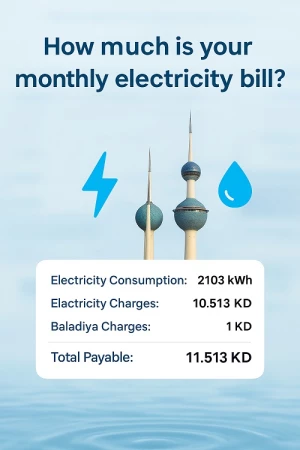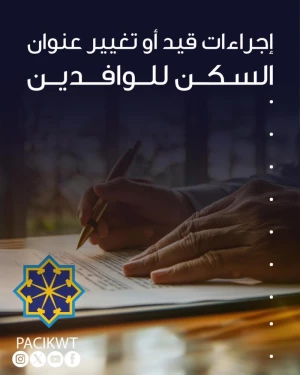Latest News
- Expats Alert: PACI Just Changed The Rules For Updating Your Addr...
- Best Pizza In Kuwait: Top Brands And What To Order
- Best Budget-Friendly Chalets & Villas In Kuwait For Weekend Geta...
- Why Electricity Bills Are Rising In Kuwait & Smart Ways Expats C...
- App Store Optimization: Why It’s Becoming A Core Part Of SEO Str...
- Best Shower Filters In Kuwait For Hair Fall And Skin Protection
- Exness Sets A New Standard Of Consistency In The Trading Industr...
- Instant Withdrawals In Trading – A Game Changer For Traders In K...
- Best Abaya Shop In Kuwait: Editorial Review Of Abay.com
- IPhone 17 In Kuwait: Prices, Colors, Specs & Where To Buy
- Best Drinking Water Filter For Home In Kuwait
- Avoid Common Qatar E-visa Application Mistakes. Learn The Top 5...
Visa Violations May Lead To Revocation Or Deportation, Warns U.S. Embassy Spokesperson
Amid growing concerns from students in Kuwait about the United States' strict visa revocation procedures, Stuart Turner, the official spokesperson for the U.S. Embassy in Kuwait, has reaffirmed the U.S. government's unwavering commitment to national security.
“We are focused on protecting our homeland and our citizens by adhering to the highest standards of national security and public safety throughout the visa process,” Turner stated.
Turner’s statement comes in response to multiple complaints lodged by students who faced unexpected visa cancellations or denials while pursuing their academic goals in the U.S.
Privacy Laws Prevent Discussion of Individual Cases
Addressing concerns over specific incidents, Turner clarified that U.S. privacy laws prevent embassy officials from commenting on individual cases. However, he stressed that the U.S. upholds a zero-tolerance policy toward violations of American law by non-citizens, including international students.
“Due to privacy and confidentiality considerations, we cannot comment on specific cases. However, the United States maintains a zero-tolerance policy toward non-citizens who violate US laws,” he explained.
Visa Revocation Based on Post-Issuance Findings
According to Turner, visa revocation can be triggered by any new information that comes to light after a visa has been issued. These circumstances may include:
- Criminal arrests or convictions
- Overstaying visa duration
- Participation in activities not aligned with the visa's intended purpose
“When considering visa revocation, the Department of State takes into account any information that arises after the visa has been issued,” he said.
This procedure is guided by established U.S. immigration laws and security protocols aimed at safeguarding American society.
Reapplying After Visa Revocation
Turner also noted that individuals whose visas have been revoked are not permanently barred from entering the U.S. They may submit a new application, where their eligibility will be reevaluated under the latest available data.
“If your visa is revoked and you wish to travel to the United States in the future, you may apply for a new visa,” Turner added.
U.S. Policy Impacting Kuwaiti Students
The policy has notably impacted Kuwaiti students, many of whom have expressed frustration over the lack of clarity and transparency in visa decisions. In a related report on visa regulations and education, students have urged for greater communication between the embassy and local academic institutions.
Ensuring Compliance with U.S. Laws
The U.S. government has maintained that its policies, while strict, are necessary to deter misuse of the visa system and ensure all visitors comply with American laws and visa terms.





